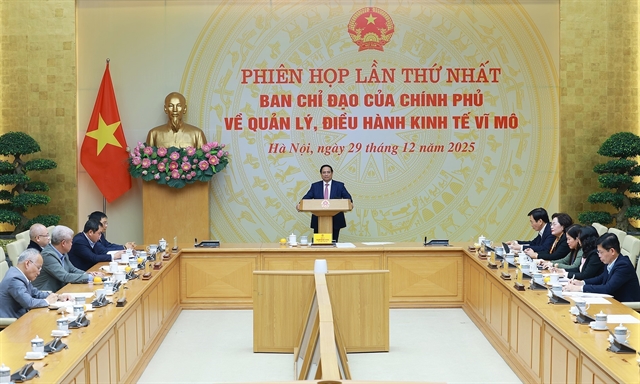 World
World

LUXEMBOURG — The European Union and the US have opened initial talks aimed at reaching a deal on accessing a criminal suspect's data stored in the other's territory when needed as evidence, EU officials said on Monday.
But the negotiations, touching on the sensitive issue of data protection and against a backdrop of increasingly strained transatlantic ties, are still "not official", Finnish Justice Minister Anna-Maja Henriksson told reporters after chairing a meeting of her EU counterparts in Luxembourg.
The talks, which began on September 25, seek to formalise and speed up cross-border cooperation on securing data from a suspect's social media or Whatsapp account where the individual is in one jurisdiction but the data is stored in another.
The goal is to set up such requests on a US-EU basis, rather than the piecemeal method currently used, where a European prosecutor has to try to coax US tech companies to voluntarily divulge the data, or US authorities have to negotiate bilaterally with each of the EU member states individually.
"Currently the largest service providers have their headquarters in the US," Henriksson observed.
Closer cooperation is important: in the European Union, 85 per cent of criminal investigations involve electronic evidence, of which two-thirds is stored in another country.
And US online giants increasingly have servers located in European countries, outside US jurisdiction.
Obtaining potential evidence from a Facebook account, for instance, today takes Europeans on average 10 months. The EU proposal on an e-evidence agreement is to cut that to 10 days.
The e-evidence agreement is meant to cover only serious crimes, such as terrorism, child sex abuse and cybercrime.
The first talks are taking place on tricky ground, with Europe demanding reciprocity from the US, which is keeping its cards close to its chest on how far it is willing to go, and which this month signed a separate e-evidence deal with Britain under a US law known as the CLOUD Act.
The director general of the EU's justice directorate, Tina Astola, told reporters that while the European Commission's mandate in the negotiations was public, when it came to the US "their mandate is not public".
A French official speaking to AFP on condition of not being identified said his country wanted the EU to sign "a balanced agreement that strongly guarantees the reciprocity of the parties' obligations". — AFP




